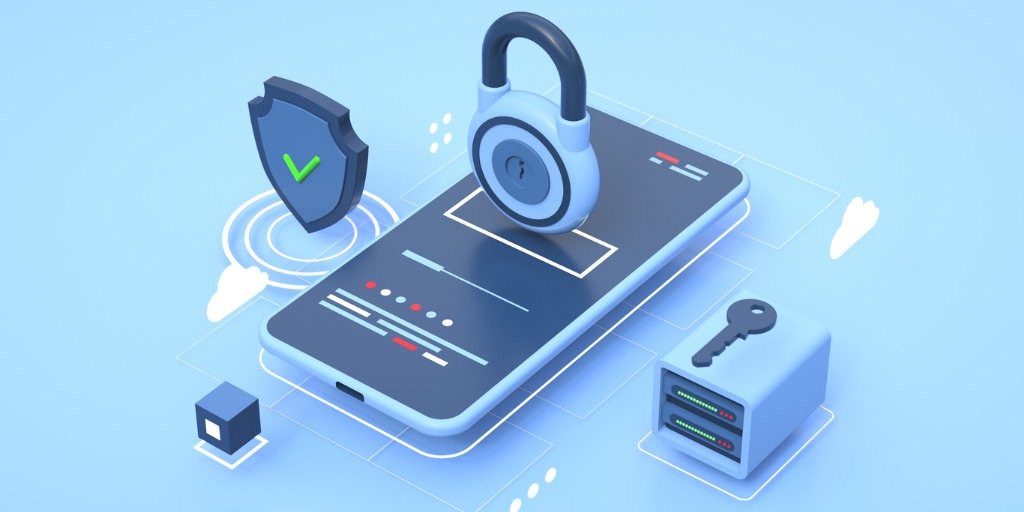Cyber Criminals Targeting Victims Through Beta-Testing Apps
Cybercriminals use a variety of deceptive methods to defraud their victims. It can be challenging to keep up-to-date with the latest threats to your online security.
The Federal Bureau of Investigation (FBI) has warned people about the dangers of a new threat - malicious beta-testing apps. These apps can have severe consequences for our data and finances.
In this article, we’ll explain how this latest attack works, the signs of a malicious app you need to be aware of, and, most importantly, what cybersecurity tools you need to protect yourself.
How Cybercriminals Are Using Beta-Testing Apps
The FBI has warned that criminals are ‘embedding malicious code’ into beta-testing apps to defraud the public. Beta apps are often used in testing before an official release and aren’t subjected to quality controls or reviews, allowing hackers to exploit users.
Most often, criminals will first use phishing scams to get your private information and establish a personal connection with you. Once they gain your trust, they will invite you to try out a new app that looks and seems legitimate and trustworthy, often with the promise of a significant financial reward.
But by downloading these apps, you could be allowing malicious code into your gadgets, and any investments you make through the app go directly into the hacker’s pocket. Further signs of a malicious beta-testing app include:
- Your mobile battery is draining faster than usual
- Sluggish performance after being downloaded
- High download numbers but little to no reviews
- Pop-up ads and additional software being downloaded without permission
- Apps that request permission for features they don’t need, e.g., microphones, location data, and address books.
- Poor spelling, grammatical errors, or bland language used in the app
- Sends time-sensitive alerts that try to pressure you into making decisions
5 Ways to Protect Yourself Against Malicious Beta-Testing Apps
With signs of a malicious app in mind, how can you protect yourself from this new cyberattack?
1. Review Sites
You must research an app before ever installing it. Do a quick search of the developer to see if they have had any successful apps in the past or if they’re brand new to the industry.
Additionally, you should compare customer reviews, even if downloading from a reputable app store. These reviews should be in-depth and highlight the app’s benefits and negatives. Be wary of overly positive reviews of brand-new apps, as these might be fraudulently posted to deceive people.
2. Use a VPN for All Your Gadgets
A virtual private network, a VPN, is one of the best cybersecurity tools. It works by disguising your IP address and encrypting your data, making it incredibly difficult for hackers to seize your information.
Best of all, it can be used on all manner of gadgets. So you can use a VPN for Chromebook, PC, tablet, or smartphone, safe in the knowledge that no matter what type of device or screen you’re working on, your actions will be kept hidden from prying eyes.
3. Use Antivirus Protection
Antivirus protection is an essential cybersecurity tool capable of scanning, detecting, and removing malicious files on your device. Many of the best software have anti-phishing features that filter and quarantine spam emails, which may prevent you from being approached by these hackers in the first place.
An antivirus software will also warn you about visiting suspicious websites and downloading potentially malicious applications. They can also monitor your computer or smartphone performance and highlight if specific applications are draining your battery – a red flag of a malicious beta-testing app.
4. Double-Check Settings & Permissions
When you download a new app, it will no doubt ask for specific features or services or permissions to function. But before you click ‘Yes’ to everything on the screen, double-check what exactly you’re allowing it to do.
Permissions should be linked to the function of an app. If something that uses your location also asks for your address book or camera, it can be a big red flag that it is secretly trying to collect your personal information.
5. Protect Your Money and Report Suspicious Activity
The bottom line is never send money to people you’ve only talked to online or through recently installed apps. The beta-testing apps cited by the FBI often asked users to transfer funds, only to be defrauded shortly afterward.
These malicious apps will demand you transfer your money quickly, hoping to pressure you into making rash decisions. Take your time, and if an opportunity seems too good to be true – it more than likely is!
If you’re worried that you downloaded a malicious beta-testing app, immediately restrict its access and permissions, unlink any connected accounts, notify your payment services (e.g., Paypal), and report the incident to your local authorities.

